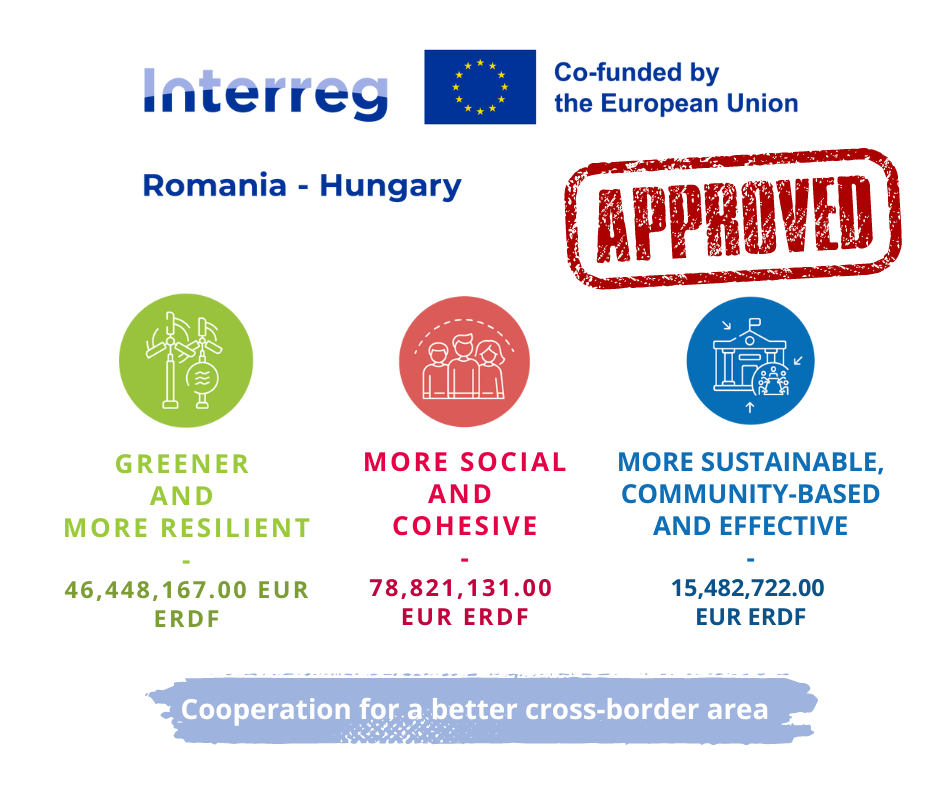The Interreg VI-A Romania-Hungary Programme was adopted by the European Commission on December 16, 2022.
Having a total allocation of 175,940,025 EUR, out of which 140,752,020 EUR ERDF, the new Programme will be jointly implemented by Romania, as Managing Authority, hosted by the Ministry of Development, Public Works and Administration and Hungary as National Authority, hosted by the Ministry of Foreign Affairs and Trade.
The vision for the ROHU Programme is a greener, more resilient, and cohesive cross-border region between Romania and Hungary, with enhanced understanding of cooperation opportunities, increased trust and reduced barriers to cooperation, towards Agenda 2030 common targets with a more sustainable cooperation framework.
The ROHU Programme strategy is articulated under 3 priorities, addressing:
- Cooperation for a green and more resilient cross-border area between Romania and Hungary (58,060,209 EUR, out of which 46,448,167 EUR ERDF);
- Cooperation for a more social and cohesive PA between Romania and Hungary (98,526,414 EUR, out of which 78,821,131 EUR ERDF);
- A more sustainable, community-based, and effective cross-border cooperation (19,353,402.00 EUR, out of which 15,482,722 EUR ERDF).
The ROHU Programme will support cross-border joint initiatives, such as exchange of experience, joint strategies/action plans, joint actions, contributing to obtaining the following expected results:
- Increased cooperation in the field of renewable energies, contributing to build green and renewable energy communities in the programme area, including by promoting joint solutions to upscale and further promote Renewable Energy Sources (RES) in the programme area (generating of RES projects);
- Increased capacity and efficiency of the emergency services and risk prevention (both climate and non-climate related) through cooperation;
- Improved coordination and protection of the natural heritage across the border;
- Increased resilience, personalization, and quality of the healthcare sector through cooperation;
- Development of a common vision for the joint promotion of common cultural and natural heritage, including cultural initiatives and the development of tourism sites and tourism niches;
- Increased understanding of cross-border exchanges and increased capacity to plan effective common actions leading to an increased number and quality of joint strategies;
- Increased understanding of barriers to cooperation and definition of possible solutions with the involvement of the adequate governance level;
- Increased people-to-people actions and cross-border cooperation through joint initiatives.
The envisaged projects will impact the entire Programme area comprising 8 counties, 4 in Romania (Arad, Bihor, Satu Mare and Timiș) and 4 in Hungary (Békés, Csongrád-Csanád Hajdú-Bihar and Szabolcs-Szatmár-Bereg).
Relevant programming documents, including SEA procedure, are available here.
PRESS RELEASE



